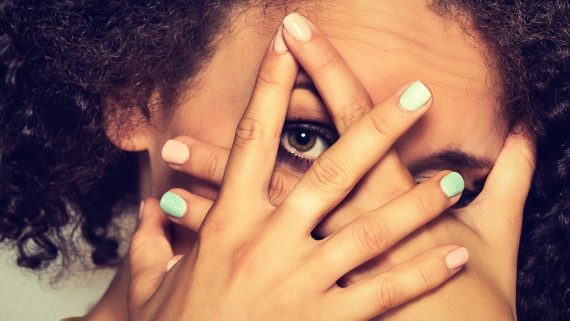Defining Prurigo Nodularis
Prurigo Nodularis (PN) is a skin condition where hard, itchy lumps form on the skin. Prurigo means itch, and nodularis means nodules. The itching caused by PN can be so intense that people often scratch themselves to the point of bleeding. The itching is made worse by sweating, heat, or irritation from clothes. If you have symptoms of PN, or have been diagnosed, read on for more info!
The Cause
The itching itself is what causes the nodules to form. When the skin is scratched repeatedly, it causes injury and the skin then protects itself by creating a thicker layer, which is where the nodules come from. This is called the itch-scratch cycle. Although the cause of PN is not always clear, certain conditions will increase the chances of someone developing PN. Some of those include:
- Psychological conditions
- Reduced liver or kidney function
- Allergies
- Skin diseases such as:
- Eczema
- Bullous Pemphigoid
- Dermatitis Herpetiformis
Diagnosis and Treatment
Excessive scratching also causes nerves to thicken in affected areas and these thicker nerves will then send stronger than normal itching sensations. A skin biopsy is usually performed to determine if PN is the cause of the itching, as a biopsy will show the thickened nerves. Other tests, such as blood, liver, and kidney tests, will also help to identify any underlying cause of the itch.
Treatment of PN is different for every patient and it may take several attempts to find a treatment plan that works for you. Common PN treatments are:
- Corticosteroid Creams are applied to nodules and covered with airtight and waterproof bandages to reduce inflammation.
- Corticosteroid Injections are injected directly into nodules to reduce inflammation.
- Oral Corticosteroids are ingested to reduce inflammation.
- Other Ointments with menthol or phenol cool and soothe itchy skin.
- Capsaicin Cream uses the heat in your body to block nerve messages.
- Oral Antihistamines are ingested antihistamines.
- SSRIs alter serotonin signals in the skin.
Habit reversal therapy is often needed, in addition to medications, to help patients reduce the amount of scratching, which can be very habit-forming. Other treatments can include cryotherapy, photochemotherapy, and immunosuppressants if the common treatments are not effective.
Even with a healthy amount of available treatment options, most people never have a complete resolution of the nodules; therefore, clinical studies to test new treatments are needed to find different and better ways to treat or even cure PN.
ActivMed Practices & Research, Inc. is currently seeking patients interested in helping to evaluate new options that may potentially help treat certain PN symptoms. Qualified candidates who participate will receive study-related care at no cost. Compensation is available for travel. If you or someone you know is suffering from the chronic itch and nodules associated with PN, this study may be a great opportunity. To learn more and to see how you or someone you love may qualify for a PN study, we are currently conducting clinical trials:
Learn more about getting involved in Portsmouth here.
Learn more about getting involved in Beverly here.
References:
https://www.aocd.org/page/PrurigoNodularis
https://rarediseases.info.nih.gov/diseases/7480/prurigo-nodularis
No two people are born completely identical. Even in the case of twins, personalities, preferences, and even minute physical differences, makes each person a unique individual. In the same way, the appearance and symptoms of skin conditions vary from person to person.
Eczema, psoriasis and prurigo nodularis (PN) are three common diagnoses that have no known cure, yet they affect the lives of millions across the globe. The symptoms of each disease are remarkably similar, and yet they each maintain distinct differences, making general treatment options difficult to prescribe. In celebration of Healthy Skin Month, here is a brief explanation of these three diseases, and what symptoms they each manifest.
Eczema
Eczema is an umbrella term used to describe a condition in which the skin becomes rough, inflamed, and causes itching and bleeding. Sometimes also referred to as Atopic Dermatitis, eczema is a hypersensitive allergic response in which the immune system attacks an unspecified stimulant inside or outside the body. Symptoms include:
- Dry skin
- Redness
- Itching/Bleeding
- Skin cracking
According to the National Eczema Association, while all types of eczema can cause redness and itching, specific types of eczema, such as Nummular eczema, can leave open, crusted or “weeping” sores. Fortunately, eczema does tend to appear in “flares”, and can subside over time.
Psoriasis
Similar to eczema, psoriasis causes itching, dry patches on the surface of the skin. The primary difference is that psoriasis is a chronic autoimmune condition that results in the production of too many skin cells. These skin cells cause thick, scaly patches to form, which can limit flexibility and cause pain. Other symptoms of psoriasis include:
- Red patches covered in thick, silvery scales
- Itching, burning, soreness
- Swollen and stiff joints
Prurigo Nodularis (PN)
Unlike eczema and psoriasis, PN is an intensely itchy skin condition that is hypothesized to be primarily caused by a thickening of nerve endings that sends a strong itching impulse to the brain. When repeatedly scratched, these nerve endings develop thick, hard nodules on the surface of the skin that can scar. Patients diagnosed with PN often find themselves scratching until pain or bleeding occurs, even while asleep. Similar to the effects of poison ivy, the more scratching that occurs, the more the nodules form and spread.
Treatment and Research
Unfortunately, there is no known cure for these conditions. Physicians at ActivMed are looking to change this reality by continually seeking new treatment options for patients diagnosed with eczema, psoriasis and PN. Those who qualify and participate in a clinical study will see a dermatologist at no cost, and receive compensation for travel. If you or someone you know has experienced chronic, itchy skin conditions, you may be eligible to participate! To learn more on how you can be involved, CLICK HERE.





